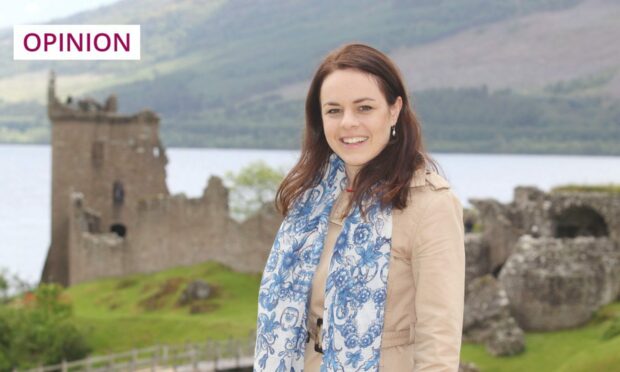Life’s too short to judge others for being religious, but deeply conservative social views don’t match up to modern Scotland, writes Euan McColm.
I feel about atheism much the same as I feel about Old Spice aftershave: a gentleman should wear it lightly.
My lack of faith in a higher power – a deity directing events to whom, one day, I will be answerable for the wrongs I did in life – is profoundly uninteresting. I cringe when I hear enthusiastic non-believers (the scientist Richard Dawkins, for example, or the comedian Ricky Gervais) express their disdain for the notion of worship.
Life is flickeringly fragile and our time on earth so brief that to spend a second sneering at the comfort others may find in religious observation seems rather self-indulgent to me.
What’s more, those of us without faith find replacements.
Is the sense of community and euphoric lift of being at the home end during a big match really so different to what someone might get from full-throated worship? Is the truth I might find in poetry and art different to the truth others find in scripture?

When, as I often have over the decades, I seek comfort in the sacred music of the Estonian composer Arvo Pärt, is the inner peace I feel somehow lessened by the fact that I do not share the Christian belief which drives his creativity?
So, when it comes to people of faith in public life, I’m relaxed.
When Kate Forbes’s campaign to become leader of the SNP and Scotland’s next first minister started falling apart on day one, I felt rather sorry for her. Her membership of the Free Church of Scotland was hardly a secret. When she answered questions about equal marriage (she’d have voted against) and family life (she believes children should be born within wedlock), the only surprise to me was that anyone was surprised.
No matter how strongly anyone might disagree with these beliefs, if we are to live in a truly liberal society, we must defend her right to hold them. We have no business telling anyone what to think.
How might Forbes’s faith affect her priorities?
Under pressure over her views, Forbes said there were questions about whether we have reached a point at which people of faith were excluded from certain positions. This, I’m afraid, was rather disingenuous.
Forbes is free to hold the opinions she does. She is free – as a member of the SNP – to put herself forward as a candidate for leadership. But, those who oppose her world view are equally free to reject her.
Forbes has said that, while she would have voted against equal marriage, she would defend the law as it stands. Unfortunately, this doesn’t answer the concern that her deeply conservative social views would impact on her leadership.
What future legislation would she reject on the grounds that it was incompatible with her beliefs? How would her faith affect her priorities?
Kate Forbes is not an unsuitable candidate to become first minister because she is a Christian, but because she expresses views that many, understandably, find offensive. Her faith is no shield against that judgment.
Euan McColm is a regular columnist for various Scottish newspapers

Conversation